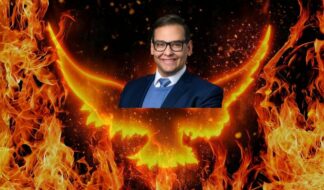By John Corvino
It's official: no more gay priests. Well, sort of.
The Vatican has released its long-anticipated instruction on gay candidates for the priesthood. It states that "those who practice homosexuality, show profoundly deep-rooted homosexual tendencies, or support the so-called gay culture" may not be ordained.
"If, however, one is dealing with homosexual tendencies that may be simply the expression of a transitory problem, such as for example an adolescence not yet complete, such tendencies must be overcome at least three years before ordination," the document stipulates.
The latter stipulation suggests some possible wiggle-room in interpreting the phrase "deep-rooted homosexual tendencies." Perhaps gay men who prove themselves capable of celibacy might still be considered?
Not so, says French Monsignor Tony Anatrella, a psychoanalyst and consultant to the Pontifical Council for the Family. In a commentary released with the document in the Vatican newspaper, Msgr. Anatrella clarifies: "Candidates who have 'deep-seated homosexual tendencies,' that is, an exclusive attraction to persons of the same sex — independently of whether or not they have had erotic experiences — cannot be admitted to the seminary or to holy orders." In other words, all persons of homosexual orientation are banned.
Msgr. Anatrella's article, which was specifically approved by the Vatican, was the only explanatory text published with the document. In it he claims that gay priests tend to have few friends, to close themselves off from others in "a clan of persons of the same type," to resent the claims on their time made by parishioners, to encourage other gay men to enter the priesthood and to deal with authority predominantly as a matter of "seduction and rejection."
Apparently hoping to win an award for the most gay stereotypes packed into one article, he adds that homosexuals have "trouble relating to their fathers; are uncomfortable with their own identity; tend to isolate themselves; have difficulty in discussing sexual questions; view pornography on the Internet; demonstrate a deep sense of guilt; or often see themselves as victims."
It's worth noting that while Msgr. Anatrella's comments have the status of official commentary, they do not form part of the actual document. To be sure, the actual document is bad enough, including its false and foolish claim that being gay "gravely obstructs a right way of relating with men and women." But although the document could have easily spelled out in detail what it means by "deep-rooted homosexual tendencies," it stops short of doing so.
This omission is no mere oversight. The document has been in the making since 1996, when then-Cardinal Joseph Ratzinger — now Pope Benedict XVI — asked the Vatican's education congregation to prepare an instruction on homosexuals and priestly vocations. Drafts were circulated among cardinals in 1998, 2002, and 2005. They've had plenty of time to get it just right.
In this case, "just right" involves wording that they can officially spin as an absolute ban while leaving the door open just wide enough for U.S. and other more liberal western bishops to read the instruction differently.
And that's precisely what's happening. Already bishops in the U.S., England, France, Switzerland, Belgium, and Holland have said in various ways that the document should not be read as an absolute ban on gay seminarians. Rather, the key issue, as they see it, is whether candidates show sufficient emotional maturity and can faithfully represent Church teachings.
Thus, barring further clarification from the Vatican, the document allows right-wingers in the Church to take a hard-line stance while tacitly permitting a more flexible approach for those inclined to ignore the document's clear subtext. It's pastorally shameful, but politically brilliant. At least until it backfires, which it well might.
***
A bright moment, for a change: Recently my partner Mark and I had a small private commitment ceremony. I told my grandparents about it but did not invite them, partly because we wanted to keep it low-key, partly because they are too frail to travel, and partly because I feared it might be weird for them.
My grandparents are Sicilian immigrants, and like many of their kind, they are Catholic but pragmatically so. They once told me that the priests in their hometown commonly had "wives" and illegitimate children. I suspect it was their way of reminding me, their gay grandson, that the Church is far from perfect. Anyway, I mentioned the ceremony to my grandparents and we discussed it no further.
Last week my mother was on the phone with my grandfather (who turns 90 in February), and he said he'd be sending her the usual check for money for the grandchildren's Christmas cards. When he noted the amount my mother was puzzled. "Dad, what's the extra $50 for?"
He replied, "Well, now we have to have a card for Mark, of course."
Take that, Msgr. Anatrella.









